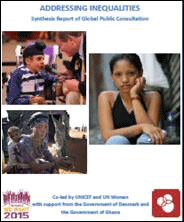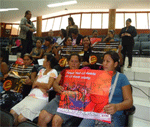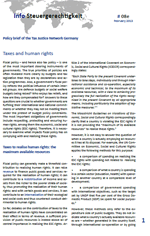Published on Mon, 2013-03-04 23:00
Since the end of the Korean War in 1950, the country has achieved sustained economic growth. GDP, which at that time was US$ 67, doubled in a decade, between 2000 and 2010, Korea joined the OECD in 1996 and achieved most of the Millennium Development Goals (MDGs). But inequality, as a side effect of economic growth, is present. There is no more extreme poverty but diversified poverty, and society still has challenges that are not shown by the indicators. The government's economic policy has encouraged assembling industry export-oriented with cheap labor. Between 2000 and 2009, relative poverty rates for children, seniors and women increased. Poverty is concentrated in the elderly at female level, low education, vulnerable health and in rural areas. It is clear that the government needs to implement policies to reduce socioeconomic inequality that go beyond reducing inequity and poverty, by creating quality jobs and social protection programs. |
Published on Thu, 2013-02-28 17:53
For over a decade the debate, research and practice focused on extreme poverty. However, the key to the new development agenda could be somewhere else, much less illuminated by the political debate: inequality. This is what emerges from several months of consultations with academics and civil society organizations performed by the specialized agencies of the United Nations on women and children, UN Women and UNICEF. |
Published on Thu, 2013-02-28 17:22
The Center for Women's Studies-Honduras (CEM-H), the Center for Women's Rights, the Women's Network of Colonia Ramón Amaya Amador, the Women's Network of Manzanal, the Women's Network of the Red Cross Col were present on February 22 before Congress in order to lobby and monitor that the proposal for a typification of femicide coordinated with the Ministry of Human Rights and Justice is in line with the work performed for more than ten years by feminist organizations for the construction of an offense that punishes men who kill women because they are women. The typification of femicide means to improve the registration systems of the judiciary, as well as to review and elaborate necessary, relevant and timely legislation for the recognition and punishment of other forms of violence against women. |
Published on Thu, 2013-02-28 13:37
Civil Society letter to members of the World Trade Organization (WTO) concerning a further extension of the transition period for Least Developed Countries (LDCs) under Article 66.1 of the TRIPS agreement. |








